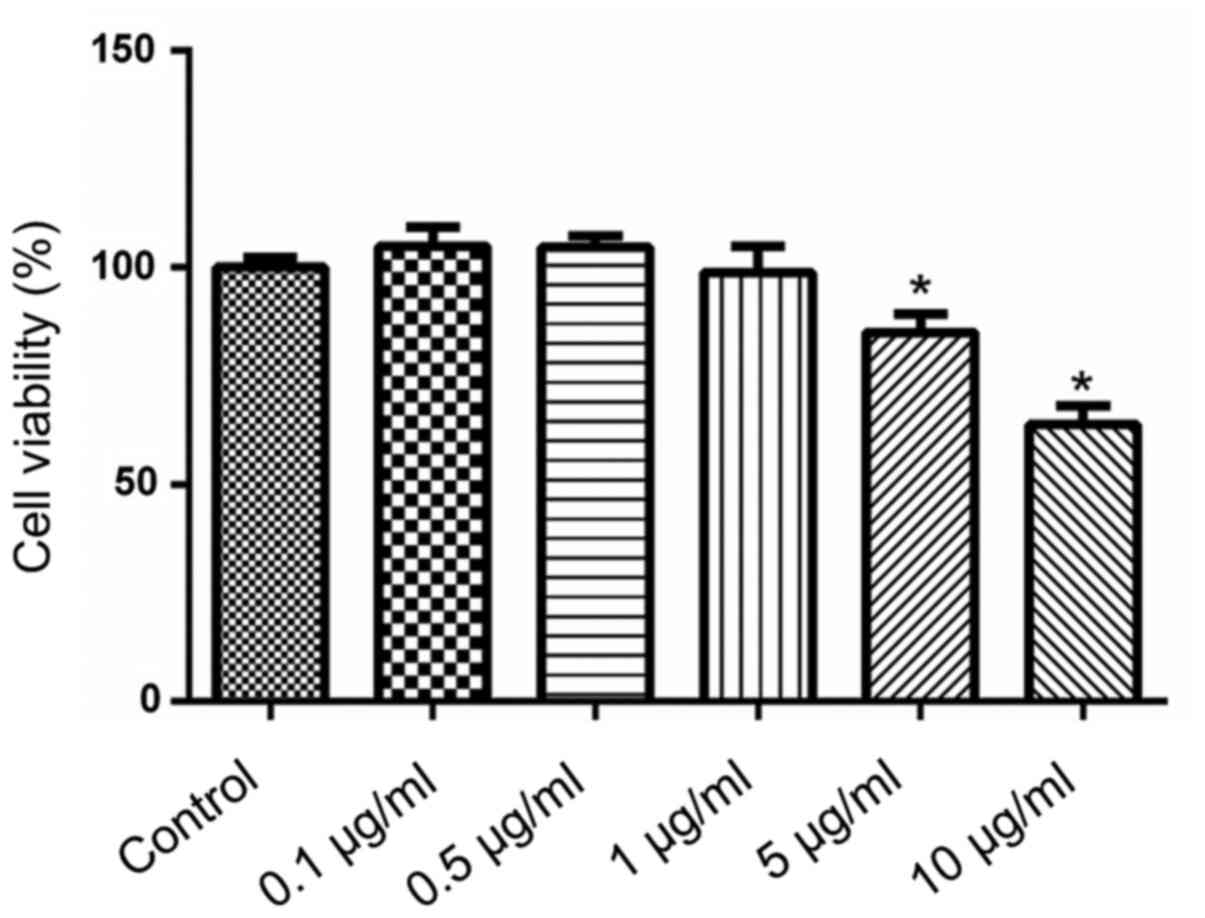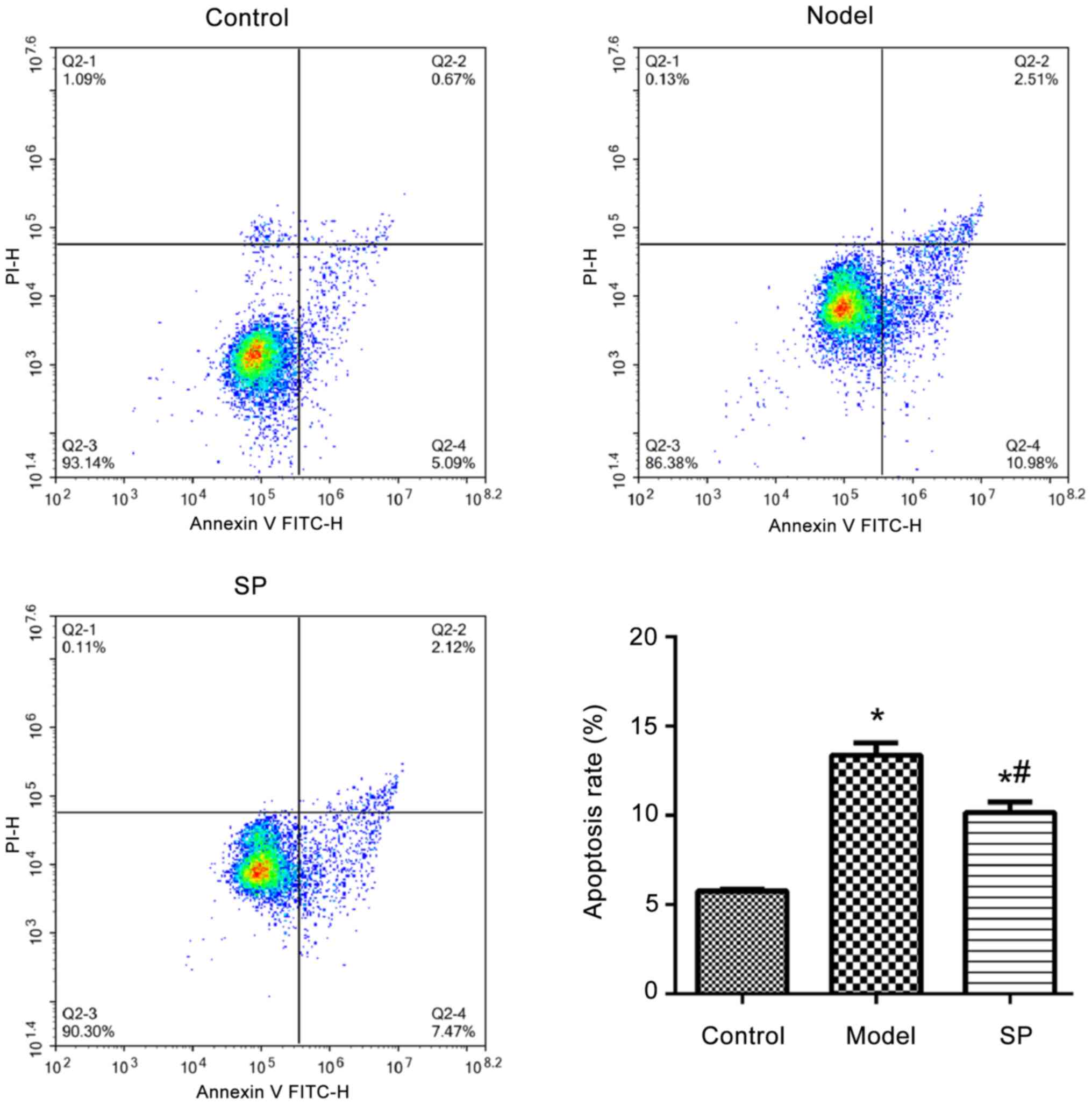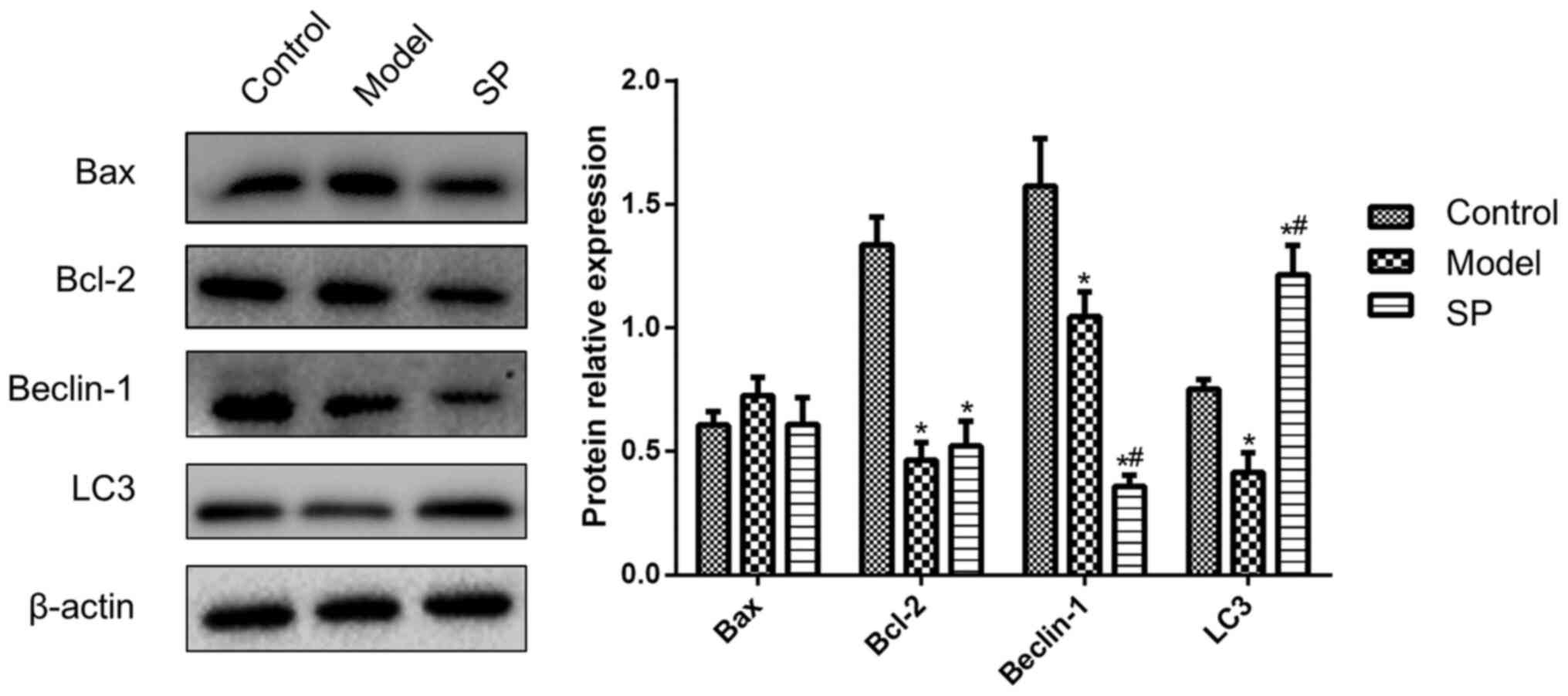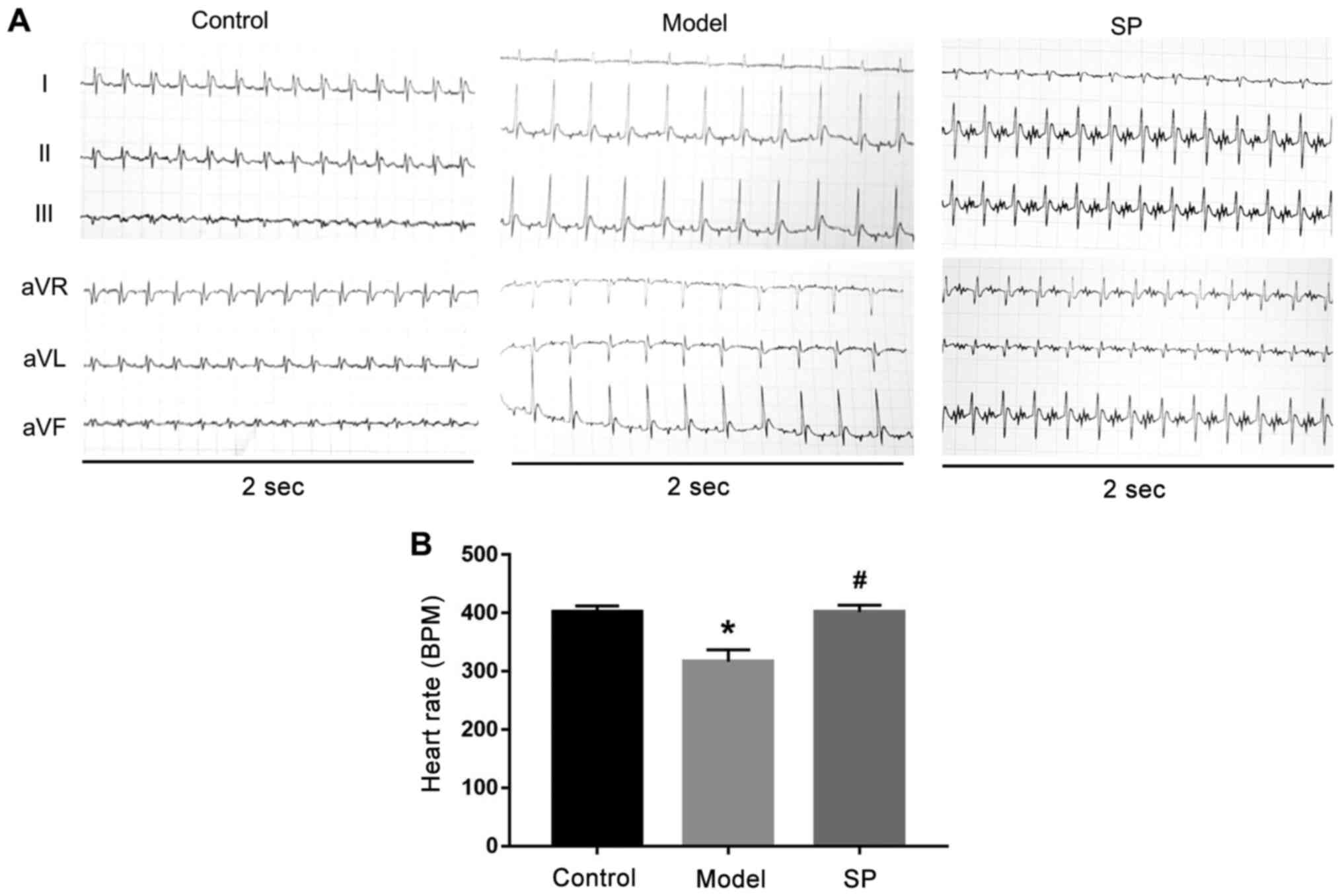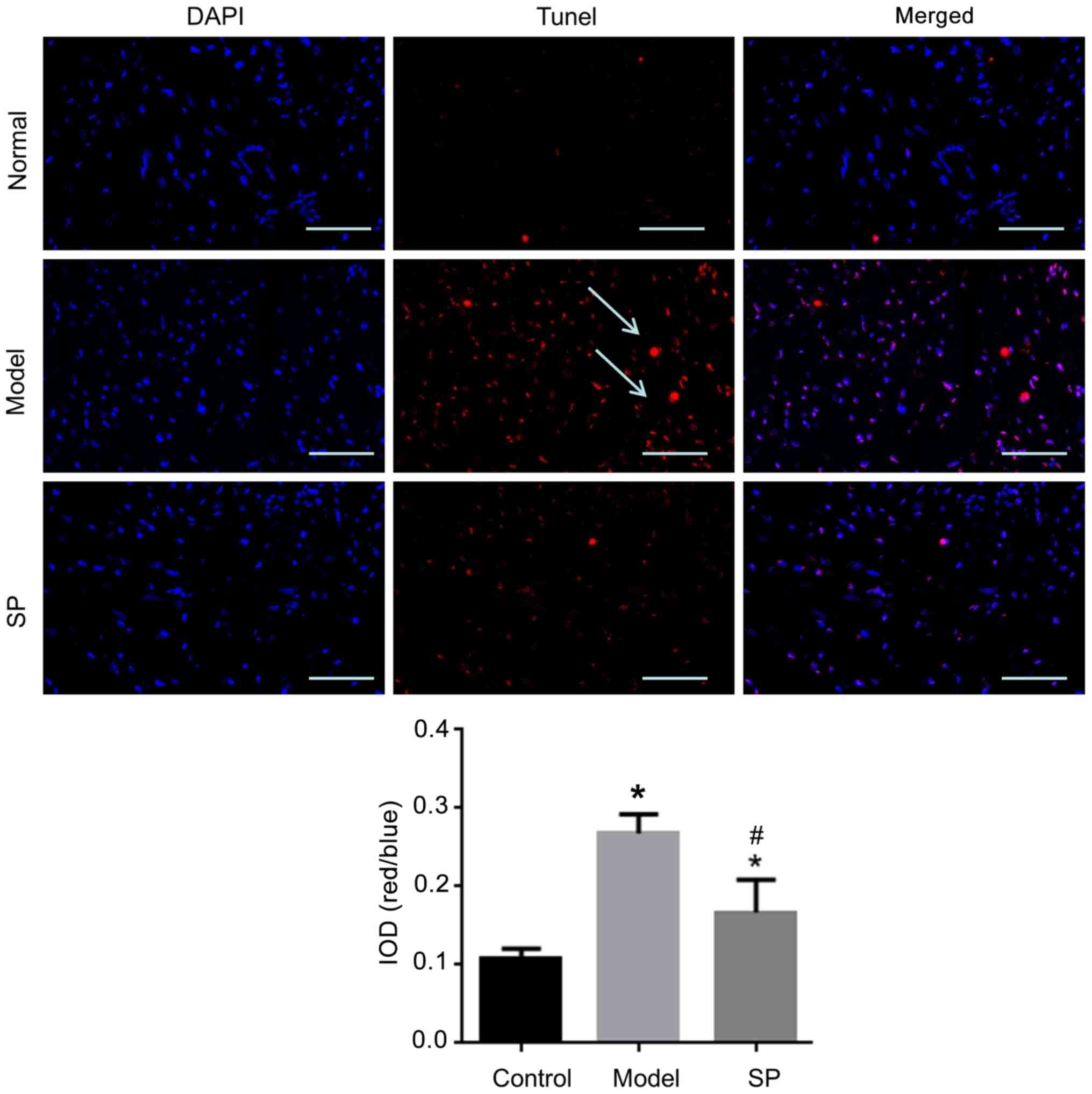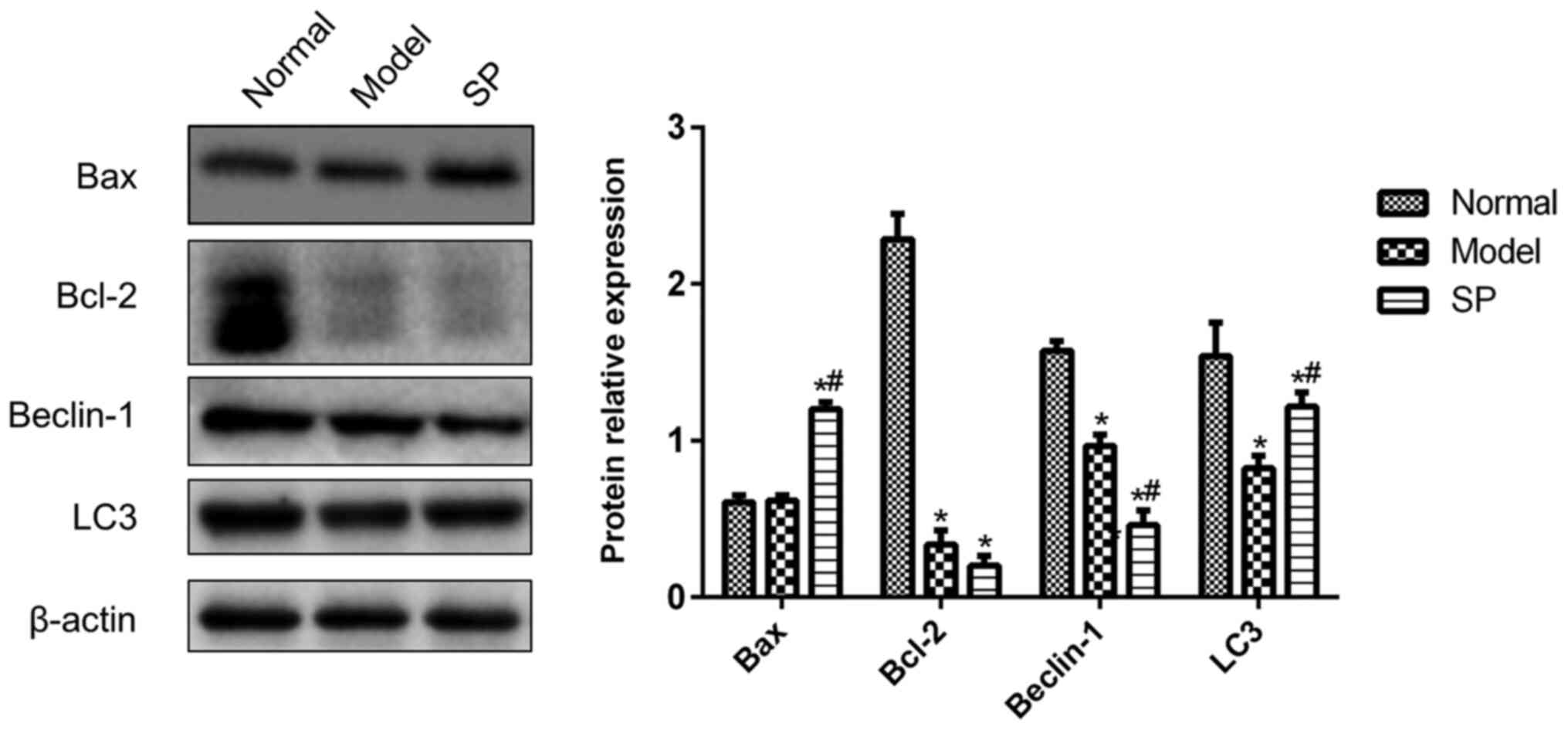|
1
|
Taheri M, Mahmud Hussen B, Tondro Anamag
F, Shoorei H, Dinger ME and Ghafouri-Fard S: The role of miRNAs and
lncRNAs in conferring resistance to doxorubicin. J Drug Target. Apr
15–2021.(Epub ahead of print.). View Article : Google Scholar : PubMed/NCBI
|
|
2
|
Conklin KA: Chemotherapy-associated
oxidative stress: Impact on chemotherapeutic effectiveness. Integr
Cancer Ther. 3:294–300. 2004. View Article : Google Scholar : PubMed/NCBI
|
|
3
|
Shabalala S, Muller CJF, Louw J and
Johnson R: Polyphenols, autophagy and doxorubicin-induced
cardiotoxicity. Life Sci. 180:160–170. 2017. View Article : Google Scholar : PubMed/NCBI
|
|
4
|
Mitry MA and Edwards JG: Doxorubicin
induced heart failure: Phenotype and molecular mechanisms. Int J
Cardiol Heart Vasc. 10:17–24. 2016.PubMed/NCBI
|
|
5
|
Jiang Y, Liu Y, Xiao W, Zhang D, Liu X,
Xiao H, You S and Yuan L: Xinmailong attenuates doxorubicin-induced
lysosomal dysfunction and oxidative stress in H9c2 cells via HO-1.
Oxid Med Cell Longev. 2021:58969312021. View Article : Google Scholar : PubMed/NCBI
|
|
6
|
Narula J, Haider N, Arbustini E and
Chandrashekhar Y: Mechanisms of disease: Apoptosis in heart failure
- seeing hope in death. Nat Clin Pract Cardiovasc Med. 3:681–688.
2006. View Article : Google Scholar : PubMed/NCBI
|
|
7
|
van Empel VP, Bertrand AT, Hofstra L,
Crijns HJ, Doevendans PA and De Windt LJ: Myocyte apoptosis in
heart failure. Cardiovasc Res. 67:21–29. 2005. View Article : Google Scholar : PubMed/NCBI
|
|
8
|
Pennefather JN, Lecci A, Candenas ML,
Patak E, Pinto FM and Maggi CA: Tachykinins and tachykinin
receptors: A growing family. Life Sci. 74:1445–1463. 2004.
View Article : Google Scholar : PubMed/NCBI
|
|
9
|
Brain SD and Cox HM: Neuropeptides and
their receptors: Innovative science providing novel therapeutic
targets. Br J Pharmacol. 147 (Suppl 1):S202–S211. 2006. View Article : Google Scholar : PubMed/NCBI
|
|
10
|
Massaad CA, Safieh-Garabedian B, Poole S,
Atweh SF, Jabbur SJ and Saadé NE: Involvement of substance P, CGRP
and histamine in the hyperalgesia and cytokine upregulation induced
by intraplantar injection of capsaicin in rats. J Neuroimmunol.
153:171–182. 2004. View Article : Google Scholar : PubMed/NCBI
|
|
11
|
Vergnolle N, Bunnett NW, Sharkey KA,
Brussee V, Compton SJ, Grady EF, Cirino G, Gerard N, Basbaum AI,
Andrade-Gordon P, et al: Proteinase-activated receptor-2 and
hyperalgesia: A novel pain pathway. Nat Med. 7:821–826. 2001.
View Article : Google Scholar : PubMed/NCBI
|
|
12
|
Meléndez GC, Li J, Law BA, Janicki JS,
Supowit SC and Levick SP: Substance P induces adverse myocardial
remodelling via a mechanism involving cardiac mast cells.
Cardiovasc Res. 92:420–429. 2011. View Article : Google Scholar : PubMed/NCBI
|
|
13
|
Johnson MB, Young AD and Marriott I: The
Therapeutic potential of targeting substance P/NK-1R interactions
in inflammatory CNS disorders. Front Cell Neurosci. 10:2962017.
View Article : Google Scholar : PubMed/NCBI
|
|
14
|
Hua F, Ricketts BA, Reifsteck A, Ardell JL
and Williams CA: Myocardial ischemia induces the release of
substance P from cardiac afferent neurons in rat thoracic spinal
cord. Am J Physiol Heart Circ Physiol. 286:H1654–H1664. 2004.
View Article : Google Scholar : PubMed/NCBI
|
|
15
|
Wang LL, Guo Z, Han Y, Wang PF, Zhang RL,
Zhao YL, Zhao FP and Zhao XY: Implication of Substance P in
myocardial contractile function during ischemia in rats. Regul
Pept. 167:185–191. 2011. View Article : Google Scholar : PubMed/NCBI
|
|
16
|
Amadesi S, Reni C, Katare R, Meloni M,
Oikawa A, Beltrami AP, Avolio E, Cesselli D, Fortunato O, Spinetti
G, et al: Role for substance p-based nociceptive signaling in
progenitor cell activation and angiogenesis during ischemia in mice
and in human subjects. Circulation. 125:1774–1786, S1-S9. 2012.
View Article : Google Scholar : PubMed/NCBI
|
|
17
|
Robinson P, Garza A, Moore J, Eckols TK,
Parti S, Balaji V, Vallejo J and Tweardy DJ: Substance P is
required for the pathogenesis of EMCV infection in mice. Int J Clin
Exp Med. 2:76–86. 2009.PubMed/NCBI
|
|
18
|
Mak IT, Chmielinska JJ, Kramer JH, Spurney
CF and Weglicki WB: Loss of neutral endopeptidase activity
contributes to neutrophil activation and cardiac dysfunction during
chronic hypomagnesemia: Protection by substance P receptor
blockade. Exp Clin Cardiol. 16:121–124. 2011.PubMed/NCBI
|
|
19
|
Cury PR, Canavez F, de Araújo VC, Furuse C
and de Araújo NS: Substance P regulates the expression of matrix
metalloproteinases and tissue inhibitors of metalloproteinase in
cultured human gingival fibroblasts. J Periodontal Res. 43:255–260.
2008. View Article : Google Scholar : PubMed/NCBI
|
|
20
|
Zhu G, Wang X, Wu S, Li X and Li Q:
Neuroprotective effects of puerarin on
1-methyl-4-phenyl-1,2,3,6-tetrahydropyridine induced Parkinson's
disease model in mice. Phytother Res. 28:179–186. 2014. View Article : Google Scholar : PubMed/NCBI
|
|
21
|
Yang Y and Klionsky DJ: Autophagy and
disease: Unanswered questions. Cell Death Differ. 27:858–871. 2020.
View Article : Google Scholar : PubMed/NCBI
|
|
22
|
Levine B and Kroemer G: Autophagy in the
pathogenesis of disease. Cell. 132:27–42. 2008. View Article : Google Scholar : PubMed/NCBI
|
|
23
|
Wu X, Zhang N, Kan J, Tang S, Sun R, Wang
Z, Chen M, Liu J and Jin C: Polyphenols from Arctium lappa L
ameliorate doxorubicin-induced heart failure and improve gut
microbiota composition in mice. J Food Biochem. Apr 17–2021.(Epub
ahead of print). View Article : Google Scholar
|
|
24
|
Piao J, Park JS, Hwang DY, Son Y and Hong
HS: Substance P blocks ovariectomy-induced bone loss by modulating
inflammation and potentiating stem cell function. Aging (Albany
NY). 12:20753–20777. 2020. View Article : Google Scholar : PubMed/NCBI
|
|
25
|
Zhang Z, Song Z, Shen F, Xie P, Wang J,
Zhu AS and Zhu G: Ginsenoside Rg1 prevents PTSD-like behaviors in
mice through promoting synaptic proteins, reducing Kir4.1 and TNF-α
in the hippocampus. Mol Neurobiol. 58:1550–1563. 2021. View Article : Google Scholar : PubMed/NCBI
|
|
26
|
Shen F, Song Z, Xie P, Li L, Wang B, Peng
D and Zhu G: Polygonatum sibiricum polysaccharide prevents
depression-like behaviors by reducing oxidative stress,
inflammation, and cellular and synaptic damage. J Ethnopharmacol.
275:1141642021. View Article : Google Scholar : PubMed/NCBI
|
|
27
|
Huang X, Qi Q, Hua X, Li X, Zhang W, Sun
H, Li S, Wang X and Li B: Beclin 1, an autophagy-related gene,
augments apoptosis in U87 glioblastoma cells. Oncol Rep.
31:1761–1767. 2014. View Article : Google Scholar : PubMed/NCBI
|
|
28
|
Runwal G, Stamatakou E, Siddiqi FH, Puri
C, Zhu Y and Rubinsztein DC: LC3-positive structures are prominent
in autophagy-deficient cells. Sci Rep. 9:101472019. View Article : Google Scholar : PubMed/NCBI
|
|
29
|
Wang Q and Zhang L, Yuan X, Ou Y, Zhu X,
Cheng Z, Zhang P, Wu X, Meng Y and Zhang L: The Relationship
between the Bcl-2/Bax proteins and the mitochondria-mediated
apoptosis pathway in the differentiation of adipose-derived stromal
cells into neurons. PLoS One. 11:e01633272016. View Article : Google Scholar : PubMed/NCBI
|
|
30
|
Wang X, Xu W, Chen H, Li W, Li W and Zhu
G: Astragaloside IV prevents Abeta1–42 oligomers-induced memory
impairment and hippocampal cell apoptosis by promoting
PPARgamma/BDNF signaling pathway. Brain Res.
147041:20201747.PubMed/NCBI
|
|
31
|
Korsmeyer SJ, Shutter JR, Veis DJ, Merry
DE and Oltvai ZN: Bcl-2/Bax: A rheostat that regulates an
anti-oxidant pathway and cell death. Semin Cancer Biol. 4:327–332.
1993.PubMed/NCBI
|
|
32
|
Andreu-Fernández V, Sancho M, Genovés A,
Lucendo E, Todt F, Lauterwasser J, Funk K, Jahreis G, Pérez-Payá E,
Mingarro I, et al: Bax transmembrane domain interacts with
prosurvival Bcl-2 proteins in biological membranes. Proc Natl Acad
Sci USA. 114:310–315. 2017. View Article : Google Scholar : PubMed/NCBI
|
|
33
|
Wu S, Cao J, Zhang T, Zhou Y, Wang K, Zhu
G and Zhou M: Electroacupuncture ameliorates the coronary occlusion
related tachycardia and hypotension in acute rat myocardial
ischemia model: potential role of hippocampus. Evid Based
Complement Alternat Med. 2015:9259872015. View Article : Google Scholar : PubMed/NCBI
|
|
34
|
Youle RJ and Narendra DP: Mechanisms of
mitophagy. Nat Rev Mol Cell Biol. 12:9–14. 2011. View Article : Google Scholar : PubMed/NCBI
|
|
35
|
Pagliarini V, Wirawan E, Romagnoli A,
Ciccosanti F, Lisi G, Lippens S, Cecconi F, Fimia GM, Vandenabeele
P, Corazzari M, et al: Proteolysis of Ambra1 during apoptosis has a
role in the inhibition of the autophagic pro-survival response.
Cell Death Differ. 19:1495–1504. 2012. View Article : Google Scholar : PubMed/NCBI
|
|
36
|
Mariño G, Niso-Santano M, Baehrecke EH and
Kroemer G: Self-consumption: The interplay of autophagy and
apoptosis. Nat Rev Mol Cell Biol. 15:81–94. 2014. View Article : Google Scholar : PubMed/NCBI
|
|
37
|
Legi A, Rodriguez E, Eckols TK, Mistry C
and Robinson P: Substance P antagonism prevents
chemotherapy-induced cardiotoxicity. Cancers (Basel). 13:17322021.
View Article : Google Scholar : PubMed/NCBI
|
|
38
|
Robinson P, Kasembeli M, Bharadwaj U,
Engineer N, Eckols KT, Tweardy DJ and Substance P: Substance P
receptor signaling mediates doxorubicin-induced cardiomyocyte
apoptosis and triple-negative breast cancer chemoresistance. BioMed
Res Int. 2016:19592702016. View Article : Google Scholar : PubMed/NCBI
|
|
39
|
Dehlin HM and Levick SP: Substance P in
heart failure: The good and the bad. Int J Cardiol. 170:270–277.
2014. View Article : Google Scholar : PubMed/NCBI
|















